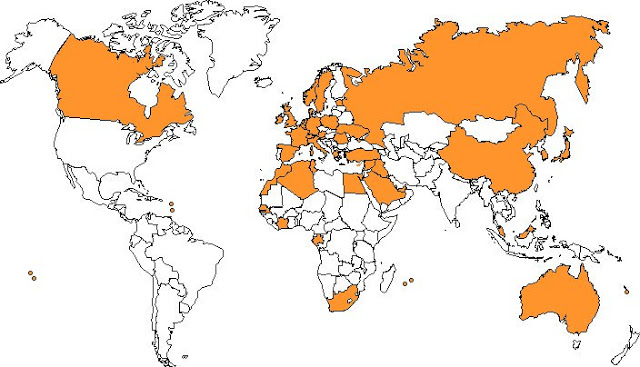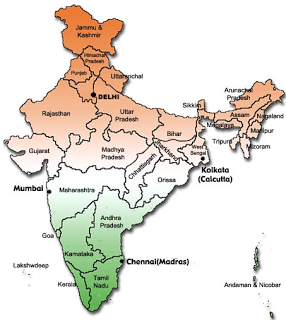
No. 5 : No. 2, I take it that you feel that the subject, as given to us has some hidden meaning and that we should not accept it on its face value. Do I understand you correctly?

No. 5 : No. 2, I take it that you feel that the subject, as given to us has some hidden meaning and that we should not accept it on its face value. Do I understand you correctly?
Tackling Tough Questions

In a series of articles, for quite some time, we have been discussing the tough questions that are asked by interviewers. During discussions, we have arrived at the conclusion that the tricky questions, i.e. the so-called tough questions, call for your careful response as they may catch you unawares sometimes. We have already analysed a number of questions that invite you to criticise yourself as well as those inviting you to be negative. Besides, we have discussed how some employers want you to assure them how long it will take you to make a useful contribution to the company you want to join, and want to gauge information regarding your objectives in the first six months. If you are already working somewhere, the interviewer may ask you why you have applied for a job while – you are. already doing a job or how you manage to appear at interviews somewhere else, if you already do a job. The interviewer may also try to know if you are in the habit of criticising your boss. These questions we have already discussed and to clinch this we stress that though many of the so-called tough questions are supposed to catch you off guard, they are not really meant for that purpose. But some questions are really intended for just that purpose. But, in no case, they are not just unpleasant for the sake of it. They either have a good reason for wanting to know the answer, or interviewers want to know how you cope with the pressure of an unexpected question.
Now that the discussion on tough questions is coming to an end, let us consider some questions which may be asked by the interviewers all of a sudden, but not without any specific aim. For example, if you have applied for a sales post, the question we are going to discuss will not surprise you. But if you are not applying for a sales post, some interviewers will like to ask you this question with a special purpose. Their aim will be seeing that you focus not on features but. on the benefits to them. For example, consider the following question:
“How can you sell me your pen?”
Now the features may tempt you to say,
“It is made of silver.”
But you have to answer instead, “It will impress
“It writes very clearly.”
or
“It is very handy.”
or
“It is unbreakable and safe to carry”, etc.
The same is the case with a notepad, paperclip or whatever they have asked you to sell them. And then finish your answer half-jokingly,
“I think you have decided to buy this pen. Shall I put you down for two dozen?”
or
“Would you prefer it in black or red?”
The interviewer may ask you a semi trick question like the following: “Would you tell me a story?”
Here, the interviewer wants to confirm whether you have a sufficiently logical mind to ask for the question to be more specific before you answer it. You are supposed to ask the interviewer what kind of story he/she wants to hear. In all likelihood, the interviewer will ask for a story about yourself and is likely to specify whether he/she wants a work- related or a personal story. You are supposed to. tell an anecdote which must show you in a good light. (You had better decide in advance which anecdote you will describe, if you are asked to tell a story.)
These are some probable questions, no doubt, but the interviewer may ask you some general questions just to find out how much interest you take in the world in general, and also to get an idea of your values and attitude to life. For example, he/she may ask:
“What do you think about privatisation?”
or
“What is your idea about global warming?”
or
“Do you think that corruption is eating the society from within?” Whatever be the question, your answer should demonstrate that you can weigh both aspects of an argument. You need to make it amply clear that you do not view things casually or in an over- simplistic way. The interviewer must get convinced that you can discuss a subject fluently as well as you are capable of making judgements.
In any case, never get loud about your particular views (if you have some strong views about something). Always acknowledge the other side of the debate. Remember that you are going to be asked these questions only by the companies which think that the questions are relevant to them. For example, if you have applied for a job in a pharmaceutical company, you may be asked to express your views on supplying cost-price drugs to the developing countries. Similarly, if you have applied or are being interviewed for a job with a bank, you might be asked to express your views on interest rates. Therefore, you should get ready for the likely questions in advance.
You are, however, advised to bear in mind that if you are well prepared, there is no likelihood, even in the least, that the questions will boggle your mind. You must be able to take them in your stride. Even if you have not specifically prepared for any sort of question, you can answer it with confidence. The key rules are as follows: pause before you answer, if you need to (interviewers appreciate, it, because they see that you are really thinking about your answer). If you cannot make out the real meaning of the question, you must ask the interviewer politely to repeal it. You are supposed to stay cool and never get nervous. Never resort to any argument. Even if you feel like disclosing your weaknesses, you are advised not to admit to any significant weaknesses that can prove detrimental. On top of everything, never be drawn into criticising anyone. Always try to make your interview an easy-going conversation. But never forget the fact that the interviewers will interview you while chatting and you are not supposed to speak off the record. The interviewers will listen carefully to what you say.


|
States
|
Capitals
|
Governors
|
Chief Mi nisters
|
|
(1) Andhra Pradesh
|
Hyderabad
|
Mr. E.S.L. Narasimhan
|
Mr. N. Kiran Kumar Reddy
|
|
(2) Arunachal Pradesh
|
Itanagar
|
Gen. (Retd.) J.J. Singh
|
Mr. Nabam Tuki
|
|
(3) Assam
|
Dispur
|
Mr. J.B. Patnaik
|
Mr. Tarun Gogoi
|
|
(4) Bihar.
|
Patna
|
Mr. D.Y. Patil
|
Mr. Nitish Kumar
|
|
(5) Chhattisgarh
|
Raipur
|
Mr. Shekhar Dutt
|
Dr. Raman Singh
|
|
(6) Goa
|
Panaji
|
Mr. B.V. Wanchoo
|
Mr. Manohar Parrikar
|
|
(7) Gujarat
|
Gandhinagar
|
Dr. Kamla Beniwal
|
Mr. Narendra Modi
|
|
(8) Haryana
|
Chandigarh
|
Mr. Jagannath Pahadia
|
Mr. Bhupinder S. Hooda
|
|
(9) Himachal Pradesh
|
Shimla
|
Ms. Urmila Singh
|
Mr. Virbhadra Singh
|
|
(10) Jammu and
|
Srinagar (Summer)
|
Mr. N.N. Vohra
|
Mr. Omar Abdullah
|
|
Kashmir
|
Jammu (Winter)
|
||
|
(11) Jharkhand
|
Ranchi
|
Dr. Syed Ahmed
|
— (President’s Rule)
|
|
(12) Karnataka
|
Bengaluru
|
Mr. Hans Raj Bhardwaj
|
Mr. Jagadish S. Shettar
|
|
(13) Kerala
|
Thiruvananthapuram
|
Mr. Nikhil Kumar
|
Mr. Oommen Chandy
|
|
(14) Madhya Pradesh
|
Bhopal
|
Mr. Ram Naresh Yadav
|
Mr. Shivraj Singh Chauhan
|
|
(15) Maharashtra
|
Mumbai
|
Mr. K. Sankaranarayanan
|
Mr. Prithviraj Chavan
|
|
(16) Manipur
|
Imphal
|
Mr. Gurbachan Jagat
|
Mr. Okram Ibobi Singh
|
|
(17) Meghalaya
|
Shillong
|
Mr. R. S. Mooshahary
|
Dr. Mukul M. Sangma
|
|
(18) Mizoram
|
Aizawl
|
Mr. Vakkom PuruShothaman
|
Mr. Lai Thanhawla
|
|
(19) Nagaland
|
Kohima
|
Mr. Ashwani Kumar
|
Mr. Neiphiu Rio
|
|
(20) Odisha
|
Bhubaneswar
|
Mr. S.C. Jamir
|
Mr. Naveen Patnaik
|
|
(21) Punjab
|
Chandigarh
|
Mr. Shivraj Patil
|
Mr. Parkash Singh Badal
|
|
(22) Rajasthan
|
Jaipur
|
Ms. Margaret Alva
|
Mr. Ashok Gehlot
|
|
(23) Sikkim
|
Gangtok
|
Mr. Balmiki Prasad Singh
|
Mr. Pawan Chamling
|
|
(24) Tamil Nadu
|
Chennai
|
Mr. K. Rosaiah
|
Ms. J. Jayalalithaa
|
|
(25) Tripura
|
Agartala
|
Mr. Devanand Konwar
|
Mr. Manik Sarkar
|
|
(26) Uttarakhand
|
Dehradun
|
Dr. Aziz Qureshi
|
Mr. Vijay Bahuguna
|
|
(27) Uttar Pradesh
|
Lucknow
|
Mr. B.L. Joshi
|
Mr. Akhilesh Yadav
|
|
(28) West Bengal
|
Kolkata
|
Mr. M.K. Narayanan
|
Ms. Mamata Banerjee
|
|
CAPITAL, LT. GOVERNOR AND
CHIEF MINISTER OF
|
|||
|
NATIONAL
CAPITAL
TERRITORY
|
*
|
||
|
National
Capital
Territory
|
Capital
|
Lt. Governor
|
Chief Minister
|
|
(1) Delhi
|
Delhi
|
Mr. Tejendra
Khanna
|
Ms. Sheila
Dikshit
|
|
CAPITALS, LT. GOVERNORS/ADMINISTRATORS AND
|
|||
|
CHIEF MINISTERS OF UNION TERRITORIES
|
|||
|
Union Territories
|
Capitals
|
Lt. Governors/Administrators
|
Chief Ministers
|
|
(1) Andaman and
|
Port Blair
|
Lt. Gen. (Retd.) Bhopinder
Singh
|
—
|
|
Nicobar Islands
|
|||
|
(2) Chandigarh
|
Chandigarh
|
Mr. Shivraj Patil
|
—
|
|
(3) Dadra and Nagar
Haveli
|
Silvassa
|
Mr. B.S. Bhalla
|
—
|
|
(4) Daman and Diu
|
Daman
|
Mr. B.S. Bhalla
|
—
|
|
(5) Lakshadweep
|
Kavaratti
|
Mr. H. Rajesh Prasad
|
—
|
Must Read:
Every conscious human being is today well aware of the fact that global warming will prove catastrophic in the near future if the rate of warming goes unchecked for a long time. Particularly, scientists are more concerned,
because they have succeeded in their effort to identify the factors responsible for this unpleasant but real phenomenon. Across the globe, lots of measures have been contemplated and the leaders of all important nations have arrived at the conclusion that global warming should be retarded and finally stopped in a phase-wise manner. Which country has to resort to what and to what extent have not yet been decided, but no country denies the fact that global warming has been caused by man and man has to do everything to curb it if life has to continue on this planet. Groups of scientists, environmentalists, NGOs and other different forums have unanimously expressed almost the
same view throughout the world. However, different views are expressed on the relation between global warming and ozone depletion or global warming and glacial retreat. Points and counterpoints pour in and the common people get confused. For example, an official discussion paper on the status of Himalayan glaciers had created a controversy owing to the argument that Himalayan glaciers which nourish several great rivers such as the Indus, Ganges, and the Brahmaputra, have not retreated abnormally. This paper had been issued by the Ministry of Environment and
Forests, Government of India a couple of years ago. Besides, the statement made by the Union Minister of State for Environment and Forests, Mr. Jairam Ramesh added fuel to the controversy. According to his statement, there was no conclusive evidence to show that global warming was responsible for the glacial retreat. His view
challenged the findings of the Intergovernmental Panel on Climate Change (IPCC). This Nobel Prize-winning international body of scientists, the IPCC, had released its comprehensive Fourth Assessment Report on Climate Change two years ago prior to it. The Report clearly pointed out that glaciers and ice caps provided the most visible
indications of the effects of climate change. TheHimalayan glaciers were receding faster than in any other part of the world.The Himalayas have the largest concentration of glaciers outside the polar region. These glaciers cover an area of 33,000 km. Seven of Asia’s greatest rivers including the Brahmaputra, Ganges and Indus are fed with this water.
The Intergovernmental Panel on Climate Change pointed out in its comprehensive Fourth Assessment Report on Climate Change some years ago that if the Himalayan glaciers continued to recede at the rate existing at that time, there was a very high risk of their disappearing by the year 2035, perhaps sooner too. According to it, measures had to be taken to curb warming of the earth at the prevailing rate. It warned with a view to making people aware of the fact that water scarcity could affect more than a billion people in Asia itself. Water shortages, it is a common knowledge now, mean a big threat for 500 million inhabitants of the Indus, Ganges and Brahmaputra river basins, who rely on permanent supply of melt-water from the Himalayas. The problems of water stress are already or ‘never’ to this evil practice of prevalent in the region due to increasing demands of domestic consumption, agriculture, industry and an ever- increasing population. Any future reduction in the availability of freshwater would have serious consequences for the economy, environment and daily life of people living within the affected area. India has already power-shortages problem (10 percent total electrical energy, 20 percent of peak capacity requirements) and in view of rising demand of energy, the likelihood of inadequate hydropower in the future has serious implications for the development plans of the whole country. Industries like food processing, mining, paper, chemical and steel production would suffer badly, because they need a secured water supply.
The Ministry discussion paper which had given birth to a controversy regarding melting of Himalayan glaciers had been prepared by Mr. V.K. Raina, ex-Deputy Director General, Geological Survey of India. Though in the paper, he had agreed that glaciers in the Himalayas, except a few, had been in constant retreat since mid-19th century, they had in no way exhibited, especially in the recent years, an abnormal annual retreat of the order that some glaciers in Alaska and It would be, therefore, premature to state that these glaciers were retreating because of global warming. Mr. Raina also went on to say that the Gangotri glacier, which fed the Ganges, was practically at a standstill for the last two years. Mr. Rajendra Pachauri, Chairman, IPCC, criticised both the discussion paper and the then Union Minister of State for Environment and Forests, Mr. Jairam Ramesh. According to him, this research was unsubstantiated. As Syed Iqbal Hasnain, a leading glaciologist thought, the discussion paper was biased and unscientific. A group of scientists at Indian Space Agency’s Space Applications Centre, Ahmedabad used satellite images to study 466 glaciers in the Chenab, Parbati and Baspa basins. They found that the glaciers had shrunk by 21 percent since 1962. The report was published in 2007. Some time back, the space scientists had carried out a study and came to the conclusion that a one degree Celsius rise in temperature by 2040 would more than halve the area occupied by the glaciers which fed a particular tributary of Sutlej. Now, a layman is free to speculate whether global warming is related to the melting of Himalayan glaciers or not.
Must Read: